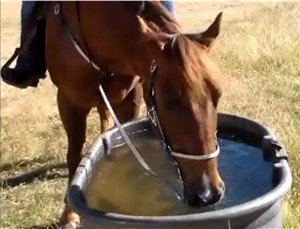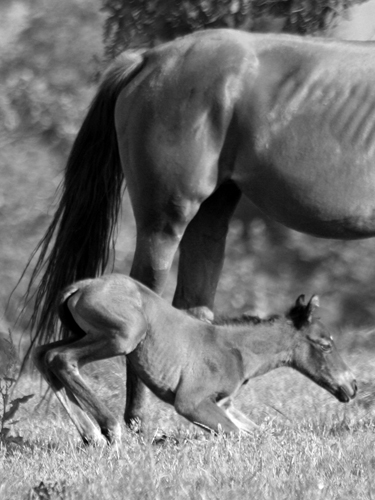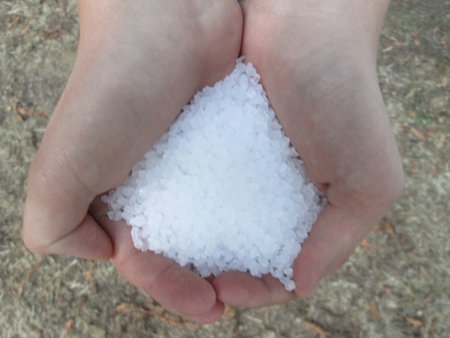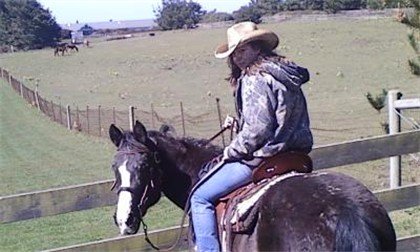Horse Water Do's And Don'ts
Get the Facts on Watering Horses
Horse water, how much does a horse need anyway? Well, that all depends. On a cool day with little to no activity, a 1000 lb horse will drink six gallons of water. Under different circumstances a horse may well drink many times that amount! That’s a lot of water.
The Big Water NO-NO
All horses should have free access to fresh clean water at all times, with one exception. Horses that are hot and sweaty and finished with their work should always be cooled down before offering them water. Giving water to a heavily exerted equine can cause life threatening colic or founder in horses. The horse should be allowed to cool down for 30-90 minutes before drinking water.
Horses that are still actively working and are hot and sweaty should be given water. A perfect example is a loaded pack horse on a very hot mountain trail. That horse is loosing precious water and body salts through their sweat. They will need a drink of water while out on the trail to prevent over heating and dehydration. When their job is done, they should be cooled down before being offered more water.
Factors Affecting a Horses Water Intake
- Heat
- Cold
- Activity level
- Health
- Types of feed
- Water quality
Obviously horses will need more water in hot weather. But did you know that horses will sometimes refuse water in cold weather? Many horses will not drink all the water they need in cold weather because it’s cold! Lack of water intake is a common cause of impaction colic in horses in cold winter areas. You can encourage your horses to drink more water in the winter by using a water heater in your horse trough to keep the ice melted and adding rock salt to your horse's feed. Electric water heaters need to be maintained regularly and checked to see that horses are not receiving an electric shock each time they try to drink.
It is important that your horse water be kept clean. Be sure that small automatic waterers in stalls are not able to become clogged with hay and feed stuffs. Stall fed horses eating grains and dry hay will require more water after a meal than horses feeding on green pastures. Adequate water is also important to prevent equine choke.
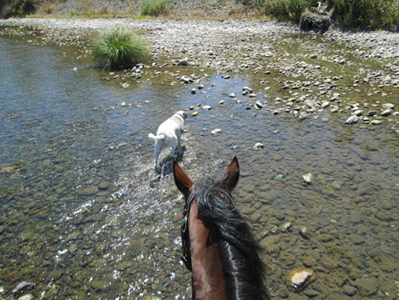 It's OK to offer water to activly working horses and Vital on a hot demanding day
It's OK to offer water to activly working horses and Vital on a hot demanding dayHorses will not drink as much water as they need if the water is too cold, frozen over, too hot, or of such poor quality that the horse simply refuses it. Outside horse water troughs need to be cleaned regularly to keep them free of disease causing parasites like pin worms and the Leptospriosis bacteria, the leading cause of equine recurring uveitis. Algae that is found in water troughs can lead to poisoning if left to grow unchecked.
Horses that are suffering form illness or disease may drink much more or much less water than normal. Checking your horse water daily gives you an idea of your horses normal water consumption. If you see noticeable changes, this can be a red flag that perhaps something more serious is going on with your horse's health.
I encourage you to read more on other equine diseases to get the essentials on equine health care. The more you know about horse diseases, the faster you will be at spotting potential problems. A few minutes spent reading can make all the difference in the world to the horse you love.
More Equine Topics You May Enjoy
Selenium Deficiency
Do you live in a selenium deficient area? Learn about selenium deficiency and what you can do about it.
True Horse Stories
Check out these fun true horse stories! Read about real life adventures on horseback.
